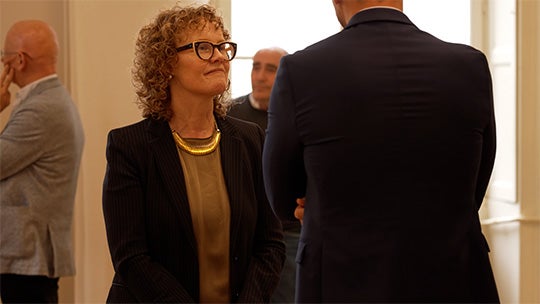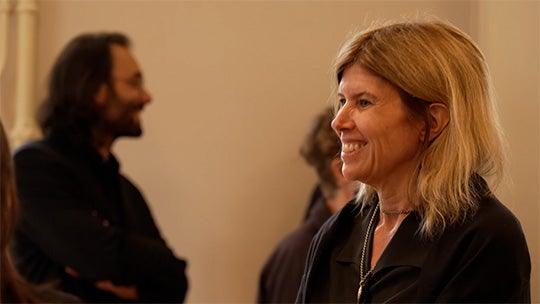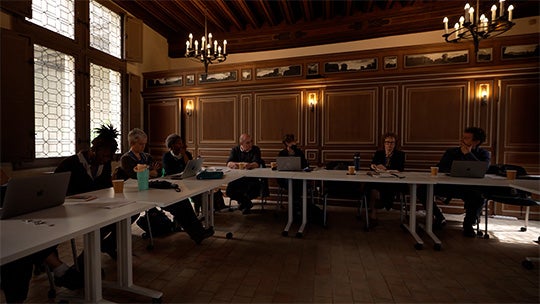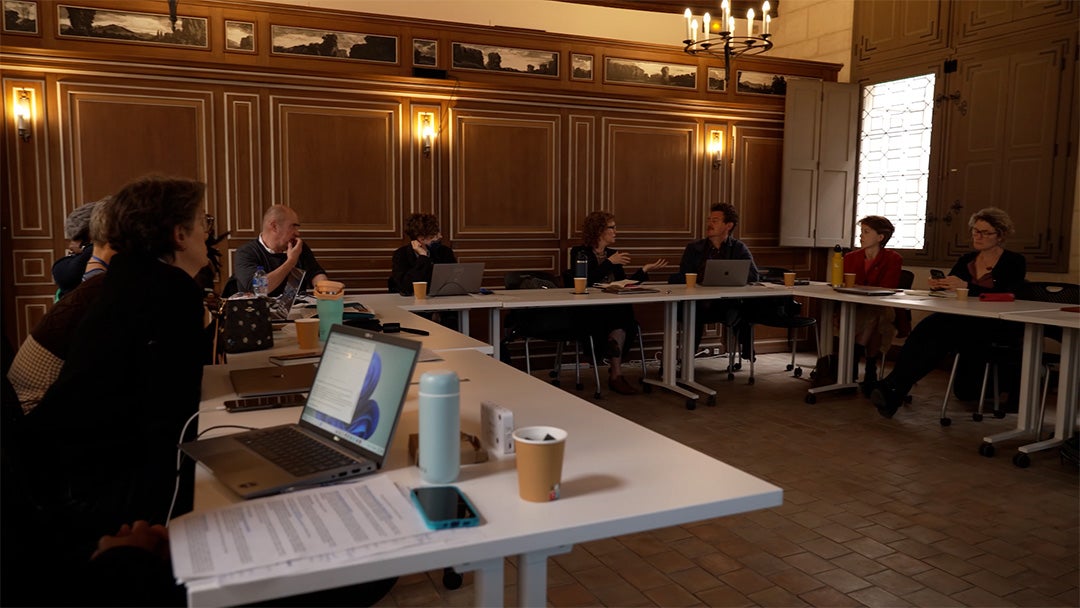As artificial intelligence, health apps and predictive analytics transform modern medicine, researchers from Rice University and France gathered at the Rice Global Paris Center to ask a more human question: What happens to care when digital logics reshape how we understand the body, the patient and the future?
The conference Reimagining Health and the Logics of Digital Care was co-organized by Paris Sciences et Lettres institutions (École Normale Supérieure, Institut Santé Numérique et Société, École Pratique des Hautes Études), Centre National de la Recherche Scientifique, the Rice Medical Humanities Research Institute (MHRI) and Rice Global. Bringing together scholars across disciplines and national contexts, the event explored how emerging technologies affect reproductive health, ethical practice and the meaning of care itself.

“We hope that this collaboration will lead to future research partnerships,” MHRI director Kirsten Ostherr said. “We see a lot of potential in the area of digital technologies and health care where we have shared interest and expertise but also a lot of different scenarios of practice in France and the United States that would make for fruitful comparative research collaborations.”
Ostherr and her French counterparts emphasized that while health care systems and regulations differ widely between the U.S. and France, the ethical and human questions raised by emerging technologies are deeply shared.
“Data driven logics are leading health care practices, and we see that there are questions related to the human in this transformation that are important and overlooked in biomedical research,” Ostherr said. “At the Rice Medical Humanities Research Institute and the Institut Santé Numérique et Société, we’re bringing together humanities and social science approaches to not just health care but digital technologies and quantitative practices within health care. That is very exciting because there are not that many groups in the world that are focused on those questions in that way.”
The conference devoted special attention to reproductive health, where emerging tools like genetic testing, embryo screening and fertility prediction are reshaping how people think about the future.
Much of the conversation centered on ethics, especially the ways bioethics take shape differently from one country to another. Participants emphasized that international collaborations like this one can help broaden how researchers everywhere approach the complex moral questions that come with digital care.

“There are so many important questions that we face as a society — that doctors face, that patients face, nurses face, social workers face — that in principle cannot be answered by a science or medical textbook,” said Samuel Reis-Dennis, associate professor of philosophy and medical humanities at Rice. “Those resources just don’t aspire to answer the ethical questions that always arise when you’re talking about patient care or public health, so you need a humanistic perspective to really move forward in a responsible way.”
“This workshop has led to so many possibilities for collaborations,” said Melissa Bailar, MHRI executive director. “Some possible areas for this kind of comparative research include the ways in which ethics committees work. The structures and the authority that ethicists have in medical settings, for example, are very different in the U.S. than they are in France.”
Bailar pointed to health-related apps as an example of how cultural and regulatory differences can influence innovation. In some cases, she said, French startups choose to launch their products in the U.S. because data privacy laws tend to be more relaxed. That kind of decision, Bailar added, opens up tough questions about how technologies are regulated and how patients are protected.
But for both Bailar and Ostherr, the most exciting work goes beyond comparing national policies. They stressed the value of building interdisciplinary, cross-border collaborations that can generate fresh ideas and more thoughtful research questions.

“We need to be talking across not just humanities and social science disciplines with those different methodologies but also extending collaborations into the sciences, into engineering and into professional realms as well,” Bailar said.
Scholars also saw the conference as a foundation for student mentorship and long-term research exchange. By cultivating a shared space for inquiry, they hoped to inspire a new generation of thinkers unafraid to question entrenched assumptions.
“I think it would be hugely beneficial for students to see that there are other ways of doing things and to understand a diverse patient population that comes from different cultural backgrounds,” Bailar said.
Reis-Dennis agreed, noting how powerful it is for students to see that the structures they assume are permanent are, in fact, historically contingent.
“I always tell my students to keep in mind that things can change,” Reis-Dennis said. “They can be the ones to help change things.”
For researchers on both sides of the Atlantic, the conference was just the beginning of what they hope will become a long-standing collaboration grounded in curiosity, mutual respect and a shared commitment to thinking differently about the future of care.
“We see great opportunity to learn from each other and share knowledge and also train our students in a collaborative cross-Atlantic way,” Ostherr said.

